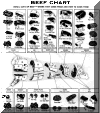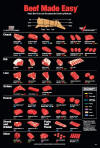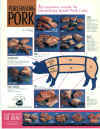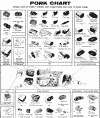Producer and processor of U.S.-raised Kobe beef report high demand for its specialty beef.
Allen Brothers, a major U.S. distributor of USDA Prime beef and other high-end meats, has seen an eight-fold increase in demand for its U.S.-raised Kobe beef, which sells for as much as $100 per pound, PRNewswire reports. Known for its rich and juicy flavor and extraordinary tenderness and texture, Kobe beef originated in Japan, where it is produced under traditional conditions, including massages and a beer diet, from the Wagyu breed of cattle.
“It's been said that more vegetarians have gone back to eating meat after tasting Kobe beef than for any other reason,” Todd Hatoff, Allen Brothers' executive vice president, was quoted. Allen Brothers' Kobe/Wagyu beef is raised exclusively for the company, in Texas and Iowa, from one of the largest herds of pure Japanese cattle in the United States, with a lineage that can be traced back hundreds of years.
Allen supplies Kobe sirloin strip steaks, filets, Ribeye steaks, porterhouse steaks, and tenderloin roast for chateaubriand. Allen Brothers introduced its Kobe beef last summer. “Sales have exceeded our most optimistic expectations, going from 5,000 pounds a week in August to as much as 40,000 pounds in recent weeks,” Hatoff said. "All Kobe beef is not alike. There are degrees of quality and the process of producing the very best can't be rushed. Like fine wine, the finest Kobe beef is not ready before its time. And the supply is almost always limited.”
There is so much distinctive marbling spread throughout Kobe beef, it is often referred to as "white steak." Marbling is the essence of great beef and Kobe beef's ratio of marbled fat to meat is higher by far (as much as 10 times higher) than any other beef, infusing it with unmatched taste and giving it remarkable tenderness. No other breed has such a high content of oleaginous, unsaturated fat.
“The good news is that Kobe is both higher in marbling and lower in saturated fat than any other beef,” Hatoff added. “Our Kobe beef regularly grades 9 or more for marbling on the Japanese grading chart, while USDA Prime, the very best American beef, grades between 4 and 5.”
Sake mash is fed to Wagyu cattle in Japan to keep them on feed and as a source of protein and energy. The diet for the Allen Brothers American Wagyu herd includes beer and liquor mashes, byproducts of the brewing and distilling industries and formulated by cattle nutritionists.
And what about those fabled massages supposedly given to cattle in Japan? Following an age-old tradition, a few Japanese farmers, mostly on small family farms, still do massage their Wagyu on the belief that it will somehow add to the quality of the beef. However, science has conclusively proved otherwise and the practice is rapidly fading. “There are no massages given to U.S.-bred Wagyu,” Hatoff said. Web posted: February 9, 2004










